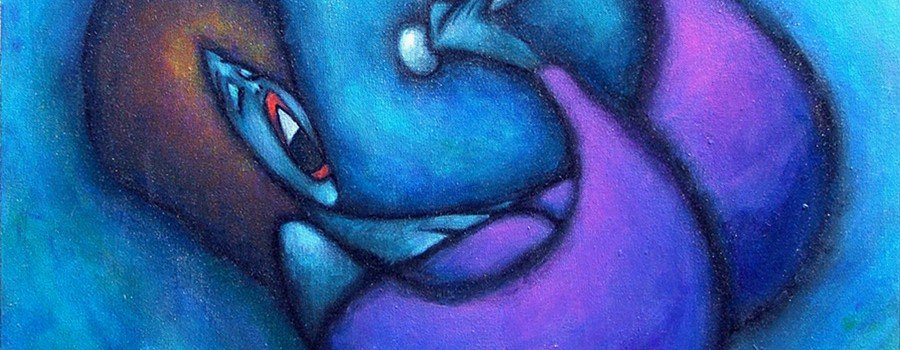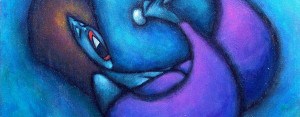
 Kari opened up a map of the southern states, pointed out Memphis, then air-circled an area of northern Mississippi just south of Tennessee and said, “this is actually where the blues all began, right here.” I’d often heard Kari say that she’d “given her life over to the blues,” but I wanted to know: why the blues, and why did she use that terminology, “giving one’s life to a type of music?” As I probed, I felt an increasingly visceral understanding of how this particular genre of music can so captivate a person, and more significantly, I was again treated to a lesson in how to channel passion. Giving yourself over to an interest 100% yields unexpected benefits and accomplishments.
Kari opened up a map of the southern states, pointed out Memphis, then air-circled an area of northern Mississippi just south of Tennessee and said, “this is actually where the blues all began, right here.” I’d often heard Kari say that she’d “given her life over to the blues,” but I wanted to know: why the blues, and why did she use that terminology, “giving one’s life to a type of music?” As I probed, I felt an increasingly visceral understanding of how this particular genre of music can so captivate a person, and more significantly, I was again treated to a lesson in how to channel passion. Giving yourself over to an interest 100% yields unexpected benefits and accomplishments.
“I was walking on a Malibu hiking path with a neighbor when I felt this compulsion…that there was a very specific purpose for why I was alive, and that was to honor and promote blues music at its essence.” Kari explained, “it’s the rhythm; the music gets inside of me and overtakes me. It causes me to dance, as if I have no control over my body. It feels like a part of how I was made. I first heard it as a child – Black music, like Mahalia Jackson. My mother had an affinity for African-American culture. The first doll I ever had was a black doll she ordered for me from the Montgomery Ward catalog.”
The rest of this essay will be a first-person account from Kari, her words. Although I’ve always been interested in what drew Kari to the blues, in the talks we’ve been having, a recurring theme seems to be what it means to “give yourself over 100%.” In all our years working together, I never saw Kari do something half-assed, as every colleague would agree. I can relate, because I was brought up in a house where my father was the same way. Everything from hobbies, to work, to certain foods, was enjoyed with passionate gusto, or not at all. I entitled this piece “Kari Sings the Blues,” but here she is confronting the darkest of times, and she canted this story articulately, with a dreamy smile, and, a couple of times, a teardrop here or there.
The first time I felt as if I’d been taken over by the blues was at an art exhibition in Napa Valley where a friend had several pieces displayed. There was music playing that mesmerized me. I went up to the curator and asked, “What is that music?” It was BB King and his most popular standards – like “The Thrill is Gone.” It captivated me, totally. I started going to the San Francisco Blues festival at Fort Mason Meadow. I also ended up working with a man from Snyder, (west) Texas, who had a huge collection of Blues CDs. We traveled extensively together by car, for our jobs as educational consultants. It was like a classroom on the road. He would tell me stories about blues players, pointing out their personal styles. He told me about blues clubs in the Bay Area. I eventually moved to L.A. in the late 90’s, when I shed a marriage and entered a new career as an English teacher. I was ready for a new commitment in my life, and that became the blues.
Many people have asked me to define “the blues,” and most people say it is a feeling; not a very definable thing. You certainly can talk about structures and patterns, but if it’s not played with authentic feeling, it’s not the blues. You can talk about the history; blues came about as a result of blending west African music with the themes, patterns and instruments of music that developed out of slavery and reconstruction. It electrified when people like Muddy Waters went north from Memphis to Chicago. Then it became the kind of blues that many white rock and roll bands appropriated, most famously, the Rolling Stones. The name “Rolling Stones” itself is from Muddy Waters’ song “Nothing but a Rolling Stone.” There was a revival of the Blues in the 1960’s, which included an effort to bring original blues to major jazz festivals, which became a lynchpin for the rock and roll genre. However, blues eventually seemed to fit more with jazz, a genre also developed – invented – by African-Americans. While it was a great honor to have the blues adopted by rock and roll, the danger has always been that people like me would lose interest if the blues became too formulaic, and devoid of some of its essential ingredients, which are, culturally, Black.
The attraction to black culture, so synonymous with the blues, is the same as the attraction to things Jewish or Japanese; it just can’t be duplicated elsewhere. You can find appreciation for it, and find it lauded, but once in a while you just have to immerse yourself in the culture of the music itself. It’s an experience you have to experience to understand. It is the quandary of finding real blues that led me to everything that’s happened in my life after my initial declaration.
At first I was naive about the blues. I went to a local club and heard a white band play. It reminded me of a time I went to a denominational (as opposed to charismatic) church in the Midwest. They were having communion, but I felt so little faith in that particular congregation that the entire ceremony seemed pretend, and offensive. No faith, and no soul. I had the identical feeling at that local blues club; it was the motions of the blues, the technique of the blues, the expertise of the blues, but without the soul. Knowing that such a thing as phony blues existed, I was propelled on a quest to find the real thing. I made plans to go to the Mississippi Delta, the birthplace of the blues, because I knew I could find it there. (Part One)
Graphic by Frank Furlong


My wife and I were friends of Kari Fretham. What a live wire! We have one copy of her DVD. Do you know where we can get more copies?